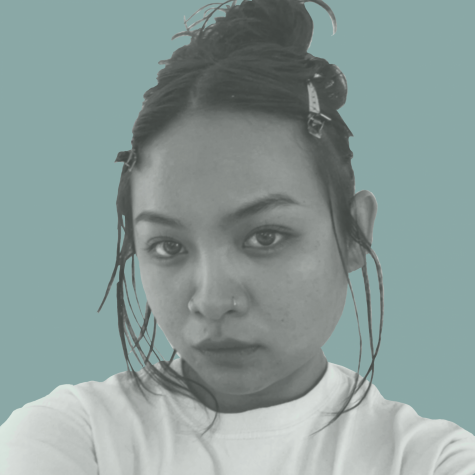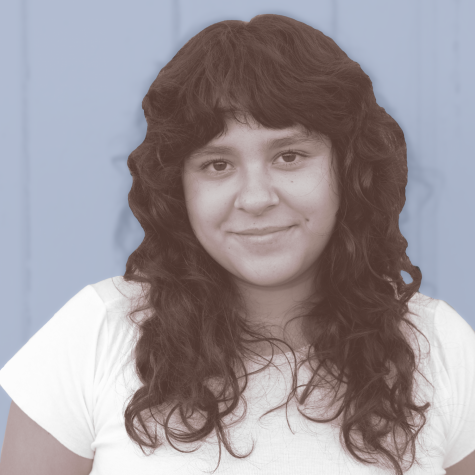The journey of self-discovery
Dakotah Puccio was 17 years old when he declared his major as marketing. While unable to do things like get a tattoo, vote or drink alcohol, he somehow was still expected to make a decision that would significantly shape his future.
Now, at 24, Puccio is in the throes of a quarter-life identity crisis.
Vice, a Canadian-American magazine focused on lifestyle, culture and news, defines a quarter-life crisis as “a period of intense soul-searching that often occurs between the mid-twenties and early thirties,” typically involving things like career reassessment, feelings of regret, and unhealthy comparisons to other people.
San Francisco-based psychotherapist Tess Brigham says that this soul-search should start with figuring out what identity means to you.
“One part of identity is really understanding how you see the definition, and the other part of the identity is finding your own unique definition,” she says.
To do this, Brigham recommends asking yourself questions like, “How do I want to identify? How do I want to live my life? What’s important and valuable to me?” Once you find those answers, you can align accordingly and “walk the walk.”
The evolution of identity
Puccio currently works for a digital marketing agency based in San Diego, California, where he was pulled on full time after graduating from San Diego State University.
While he loves aspects of marketing and certainly identifies with it, the job simply isn’t fulfilling. At least not in his current position.
After working at the marketing agency for some time, he thought to himself, “If this is what I’m looking forward to in my workdays, I’m going to be very upset.”
Once you arrive in your 20s, you’ve been exposed to an overabundance of influences. The self-discovery journey becomes increasingly difficult as social pressures and conformity join the mix — enter: the identity crisis.
According to San Francisco State University professor of psychology Dr. Zena Mello, identity is highly related to anxiety. When people have a strong sense of identity and feel confident in themselves and their choices, it can certainly provide a sense of calmness (and vice versa).
Identity is a core process that begins at a young age and essentially never stops, says Mello. From infants to adults and seniors, individuals have a sense of who they are.
According to Mello, developmental psychology draws largely from the theories of German-American developmental psychologist Erik Erikson, more specifically his stages of psychosocial development. His theory maintains that the persona develops in a predetermined order throughout a number of stages from infancy to adulthood.
Mello explains that there is a fairly simple explanation as to why identity becomes confusing specifically once in your 20s.
“Adolescence, this period largely marked by puberty and then the transition to adulthood, is the period of the life that identity is the most active,” Mello says.
She continues that this is largely because once humans begin the journey to adulthood, they develop the capacity to think more complexly about things than they ever have before.
“The way that we interact with the world around us changes so dramatically in adolescence,” she says.
Young adults are faced with many decisions they might not have had to make before. Often, they can exercise more autonomy, which can either create confusion around identity or affirm it, Mello says.
The latter is certainly the case for 24-year-old Archie Morrison. They describe moving out of their parents’ home two years ago as a real turning point in finding who they are.
“Living with my parents kept me in this little box of who I could be instead of letting me be who I am,” they wrote in an email. “Everything I am now, I’m doing on my own even if it’s a constant struggle.”
An excessive amount of options leaves more room for uncertainty. “When you’re young, you do have a ton of choices,” Brigham says. “And so now, every single time that you go to make a choice, there is always something better around the corner, and that becomes a problem within itself.”
Finding a sense of identity becomes much more difficult if you’re also on a perpetual search for The Right Decision.
Chair of SF State’s philosophy department Mohammad Azadpur says people in their 20s tend to feel a stronger desire to reshape their identity.
“These age groups are when we are coming to terms with who we are. We recognize what we have and the ‘self’ we have accomplished, and we are oftentimes unhappy with it,” he says. “We think there is more. There’s a sense that is perhaps stronger in our early 20s that you need to recraft or reshape your persona, your identity, to something more authentic.”
Morrison relates to this. “Being a 20-something,” they say, “I feel this era is all about that self-discovery.”
Brigham says that adolescents often have an idea of adulthood that quickly becomes debunked once they reach that transitional period.
“We tend to put all of our hopes and fantasies and dreams into adulthood or what it’s going to be, that it’s going to solve these things for us,” she says. “What you’re seeing with young people feeling so lost in adulthood is that they’re in it now.”
Brigham works primarily with young adults and frequently sees this pattern in her work.
“Whatever beliefs they had about who they were going to be or how the world was going to be, it gets shattered,” she says. They are left to ask themselves, “How do I let go of these behaviors and habits and beliefs about myself that are no longer relevant. And how do I form and become a person that I want to be that aligns with truly what I want?”
Continuity in perception
According to Mello, identity is both a sense of who you are and how others see you. Part of our identity depends upon self-perception, just as it does upon how we are perceived by others.
In developmental psychology, they use the term ontogeny, defined by the American Psychological Association as “the biological origin and development of an individual organism from fertilization of the egg cell until death.”
In the context of identity, Mello describes ontogeny as “the principle that everything is inside you and it just naturally unfolds.”
While it may seem in this sense as though identity is predetermined, Mello emphasizes that identity has just as much to do with your relationships with other humans and the society around you.
“I might have a sense that I’m an extrovert and I am intellectually inclined,” Mello says. “And the more that I see that other people see me that way, then the more my identity is known.”
Reinforcement from other people affirms our own sense of who we are. Without other people, there are fewer opportunities for the expression of identity. The opportunities still exist, of course, but significantly less so.
Erikson’s work emphasized the subjective feeling, or, as Mello describes it, “the ideas that one has for themselves, about their sameness and continuity, in how they see themselves and how others see them.”
Perception of identity can be categorized into three parts: how we see the world, how we see ourselves, and how the world and other people see us.
“That’s the thing that we’re all trying to get to,” Brigham says. “This point of being able to say that the way I see me is how you see me and how the world perceives me, and all these things line up.”
However, Brigham stresses that it doesn’t matter how or even if these categories align.
“It’s really about how you feel about yourself,” she says. “It’s about you liking the person that you are, liking your life, because everything comes down to how you feel about it.”
Maybe you aren’t lost
This concept of feeling lost implies you once acquired an identity. In reality, our identity is always there, but this “lostness” still resonates with so many. Perhaps it is less about finding your identity as if it is lost and more about returning to the person you already are through a process of unlearning and uncovering.
Brigham says the situations you are born into and the people you surround yourself with absolutely influence your identity and self-perception. Despite this, she says, “I do believe in the end, determining your identity and who you are is such a private, individual, personal thing.”
The idea that identity isn’t lost resonates with Morrison. “I think my identity is buried and I’m constantly trying to figure it out, but it’s there,” they say.
However, what lies beneath all the layers of influence and learned social constructs may not actually be our identity but rather the ability to transcend.
“What is there is not some essential thing,” Azadpur says. “What is there, hidden underneath those layers, is your freedom to determine who you are. The ability to craft yourself is what is being suppressed and covered over these things.”
Brigham says that despite the importance of influence, discovering your identity is “a little bit about quieting those voices down and really figuring out for yourself, ‘Am I the person that I want to be? Or am I this person that I feel like I need to be or should be?’”
Azadpur believes uncovering or recrafting your persona requires spending time alone with what he calls your “inner dialogue.” We all have unique lived experiences that essentially create who we are. Therefore, the reshaping of identity requires an excavation that can really only be done in solitude.

The inner dialogue is crucial in carving out a more authentic self. Spending time alone, says Azadpur, provides a real opportunity for reflection and self-examination.
“When we are with others, we immediately adopt those patterns that are sort of dominant in the society in which we find ourselves,” he says.
‘The formula is within’
Those struggling with identity might wish for a magic formula to follow that would give them a better sense of who they are. If such a formula exists, it is by no means universal or one-size-fits-all, nor is it fixed.
According to Brigham, the formula is within, and it will always be changing.
“All the answers you want are inside of you,” she says. “And the formula has to keep changing because you keep changing and growing.”
But apart from that, she says, there shouldn’t be such a high focus on this concept of finding yourself. The journey toward self-discovery can be much simpler for folks once they accept that it is a continuous process that essentially has no end.
“You’re always going to be finding yourself,” Brigham says.
What could also help is limiting the media you consume when alone.
“Pick books, articles, movies to consume that feel like they are going to nurture you in some way, shape, or form,” says Brigham, “Just take a bit of a diet from all of the information that’s coming at you” so you can sit and reflect independently.
For both Morrison and Puccio, solitude is one of the few things that keep them grounded.
Meditation has been the perfect way for Puccio to look within. He’s noticed a “surprising difference” since beginning daily meditation.
“I do feel like I learn a lot about myself in meditation, or it opens the floor to be truthfully honest,” he says.
Morrison also feels that prioritizing alone time really pushes them to find themself.
“While I love and appreciate the people in my life, letting myself be me is crucial,” they say. “I don’t have to worry about how other people see me or taking care of someone else, which can be a luxury, it lets me think and look at things I otherwise wouldn’t be able to do.”
There is an overarching theme of balance when it comes to identity. As solitude is important for identity, so too is community. Mello encourages people to strengthen the relationships around them for a better sense of identity.
“There is a lot of support and a lot of knowledge, and a lot of bridging that can happen from people around young adults,” Mello says.
The best piece of advice Puccio can offer to others on a similar journey is to realize that this is a universal experience. Thus, talking and relating to others has been extremely beneficial for him.
“Every person’s experience might be unique,” he says. “But even in me personally opening up to other people about how I feel, I’ve been surprised at the reaction. And even though someone might not have the exact same experiences, I find a lot of solace.”
Morrison says that talking it out has helped them too. “Discussing these things is so important because it can be self-gratifying and could help someone else either by allowing them to express themselves safely too or by showing others a new perspective.”
Between spending time alone and connecting with others, no matter what your unique formula is, Brigham stresses the importance of practicing openness to experiences to find what works for you.
“Different jobs and relationships and places and cities and hair colors and all of these different things,” she says. “Explore and see what is right for you, and when you land on one, great. You landed on one, and then just keep going.

KK Interchuck (she/they) is an amateur guitarist, cat mom, and journalism and women and gender studies double major in her last semester at SF State. A...

Avery Wilcox (she/her) is a fourth-year photojournalism major and museum studies minor. This semester she will work to edit and create content as the photo...


